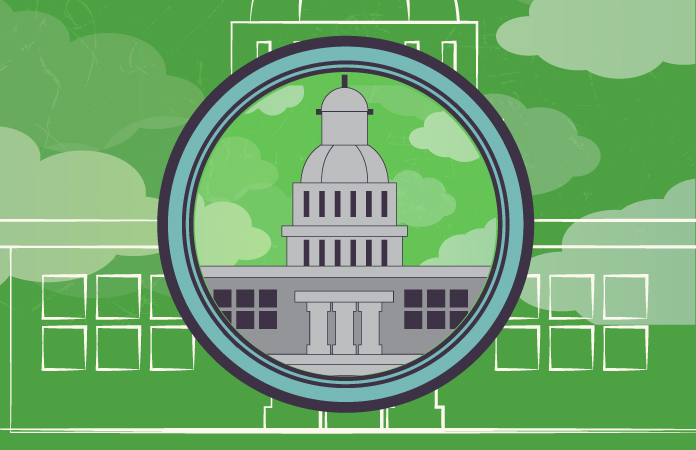
This week, lawmakers introduced several bills addressing air quality and air quality regulations in the state. One bill requires the Division of Administration in the Department of Public Health and Environment or the Air Quality Control Commission to aggregate emissions from the oil and gas system and include emissions from exploration and preproduction activities in evaluating a permit application. The other bill defines a “repeat violator” and “high-priority repeat violator” of air quality laws and raises the maximum civil penalty to the amount provided by state air quality laws.
Another bill grants the state attorney general rule-making authority over restrictive employment agreements, specifically addressing employer eligibility to recover the expense of educating and training a worker where the training is distinct from normal, on-the-job training.
Bill Number: HB24-1313
Title: Housing in Transit-Oriented Communities
Introduced: Feb. 20
Sponsors: S. Woodrow, I. Jodeh, C. Hansen, F. Winter
Summary: The bill establishes a category of local government as a transit-oriented community and defines qualifying communities. The bill requires a transit-oriented community to meet its housing opportunity goal.
Bill Number: HB24-1324
Title: Attorney General Restrictive Employment Agreements
Introduced: Feb. 20
Sponsors: C. Clifford, L. Liston
Summary: The bill grants the attorney general rule-making authority over restrictive employment agreements. Current law allows an employer to recover the expense of educating and training a worker where the training is distinct from normal, on-the-job training. The bill regulates the recoverable expense as other consumer debt and student debt. The bill also adds the requirement that, for an employer to recover the expense, the training must comply with rules promulgated by the AG regarding the transferability of the training or credentialing that is available to the employee as a result of the training.
Bill Number: SB24-162
Title: Best Practices to Prevent Discrimination in Schools
Introduced: Feb. 20
Sponsors: J. Marchman, F. Winter, J. Bacon, L. Herod
Summary: The bill requires the Department of Education to enter into an agreement with an organization to develop best practices for local education providers, and specifically public schools, to effectively respond to reports of harassment or discrimination.
Bill Number: HB24-1330
Title: Air Quality Permitting
Introduced: Feb. 22
Sponsors: J. Bacon, J. Willford, L. Cutter
Summary: The bill clarifies that a request for general permit registration doesn’t constitute having a valid construction permit. It also requires the Division of Administration in the Department of Public Health and Environment or the Air Quality Control Commission to aggregate emissions from the oil and gas system and include emissions from exploration and preproduction activities in evaluating a permit application for an emitting source that includes an oil and gas system.
Bill Number: SB24-163
Title: Arbitration of Health Insurance Claims
Introduced: Feb. 22
Sponsors: D. Roberts, M. Catlin, L. Daugherty
Summary: The bill makes changes to the arbitration requirements for out-of-network health insurance claims by requiring the arbitration process to include a batching process, by which multiple claims may be considered jointly and under the same arbitration fee as part of one payment determination in alignment with federal law. The commissioner of insurance is required to promulgate rules that specify the information each insurance carrier is required to submit to a provider with the initial payment of a claim.
Bill Number: SB24-165
Title: Air Quality Improvements
Introduced: Feb. 22
Sponsors: K. Priola, L. Cutter, M. Rutinel, L. Garcia
Summary: On or before Dec. 31, 2028, the bill requires the Air Quality Control Commission to adopt by rule certain emission standards and requirements for in-use, off-road, diesel-fueled fleets. On or before Dec. 31, 2025, the AQCC must adopt rules for controlling emissions from qualifying facilities, buildings, structures, installations or real property.
Bill Number: SB24-166
Title: Air Quality Enforcement
Introduced: Feb. 22
Sponsors: F. Winter, M. Froelich, E. Velasco
Summary: The bill defines a “repeat violator” as a person that, in a three-year period, has committed five or more violations of certain air quality laws. The bill also defines a “high-priority repeat violator” as a repeat violator that, in a three-year period, has committed five or more exceedances of the allowable emissions of an air pollutant in a permit. It raises the maximum civil penalty to the amount provided by state air quality laws.

Law Week’s legislative tracking is done through State Bill, a product of our publisher, Circuit Media.

